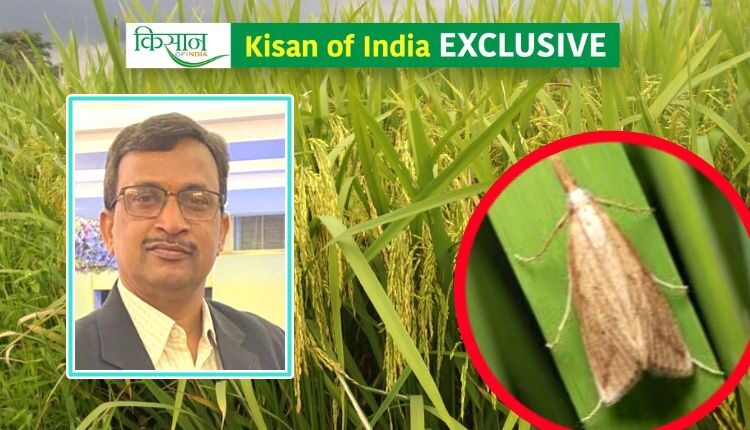Advanced methods of protecting paddy crop from harmful insects
It is important to protect in time, know how to prevent pests
Presently the work of transplanting paddy crop is going on. It is to be noted that the paddy crop is prone to infestation to various types of pests. Special conversation with Dr. Mayank Kumar Rai, Plant Protection Specialist and Head of Krishi Vigyan Kendra Gautam Budh Nagar, about how to deal with this menace.
In the main crop like Kharif paddy, many types of insects and mites keep ambushing to spoil the hard work of the farmers. In such a situation, it becomes a challenging task for the farmers, how to take care of their paddy crop. To get rid of the infestation of pests, it is important to identify the pests properly. Get complete information about its prevention. No more chemicals have to be used in the crop and pests on paddy can be controlled at low cost. On this, Kisan of India had a special talk with Dr. Mayank Kumar Rai, Plant Protection Specialist and Head of Krishi Vigyan Kendra, Gautam Budh Nagar.
Stem borer pest identification and prevention
Dr. Mayank Kumar Rai explains that one of the major pests in paddy is the stem borer. At any stage of the crop, these pests make holes in the paddy plants and cut its veils from inside. Due to this, the stem of the plant appears dry. For its control, after removing the seedlings from the nursery, trim the upper end of the plant so that the eggs of the insect do not reach the paddy field.
Use pheromone trap for stem borer pest control. Various types of insecticides can also be used to protect the crop. For the control of stem borer, spraying of 20 kg carbofuran-3G or 18kg of cartop hydrochloride 4% per hectare in 3 to 5cm solution in stagnant water should be done.
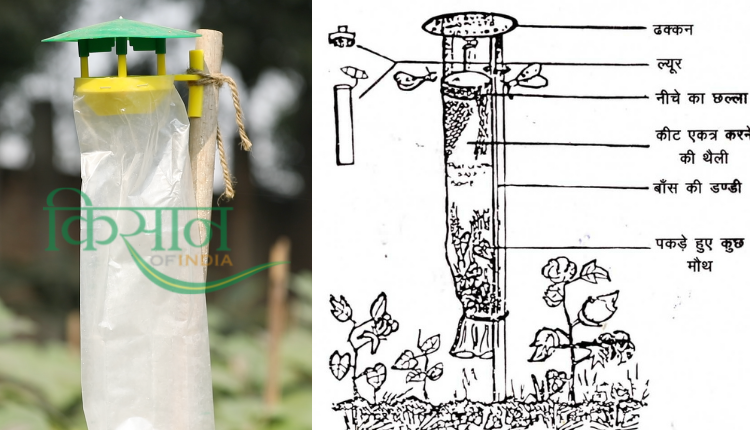
Leaf Wrap Pest Prevention Measures
Dr. Mayank Kumar Rai told that the infant of the leaf wrapping insect comes out of the egg and sews both sides of the leaves with their saliva. They keep eating by scraping the green part of the leaves. Due to this the leaves appear reticulated, which later dry up. Due to this, the yield of paddy decreases significantly.
In the paddy crop, by rotating the rope from both sides in the field, the larvae of the insect is destroyed by falling in water. For chemical control of this pest, spray 1ml dimethoate solution with 1 litre of water.
The most harmful pest of paddy is brown hopper (BPH)
According to the plant protection expert, one of the major pests causing the most damage in paddy is also named hopper pests. They are of two types – Green hopper and Brown hopper. It is very easy to recognize the green hopper. They suck the sap of the plants, due to which the leaves turn yellow and the growth of the plant stops. These pests are found in the lower part of the plant towards the roots. They suck the sap of the stems of plants, due to which the paddy plants dry up. For the control of this pest, spraying of imidacloprid drug at the rate of 1 ml per 3 litres of water should be done.
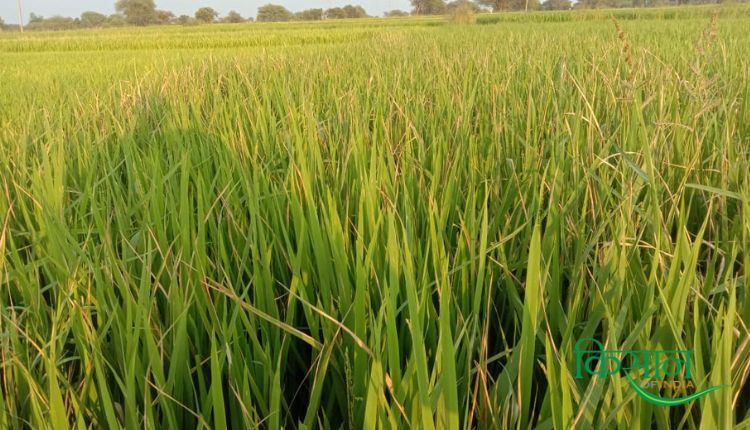
Read more : Groundnut Cultivation: This variety of groundnut is improved for drought affected area, production increased by 21%
Gundhi bug insect attack occurs in milky stage of paddy
Dr. Rai said that a special kind of foul smell comes from the myrrh bug insect. These insects suck their milk at the milking stage. Because of this, their grains are not formed properly.
For the control of this pest, it is necessary to keep checking the fields regularly after planting the crop. During this time, if the infestation of this pest is more visible in the field, then it becomes necessary to use insecticides for crop protection. For this, methyl parathion drug should be sprinkled in the field at the rate of 25 kg per hectare.
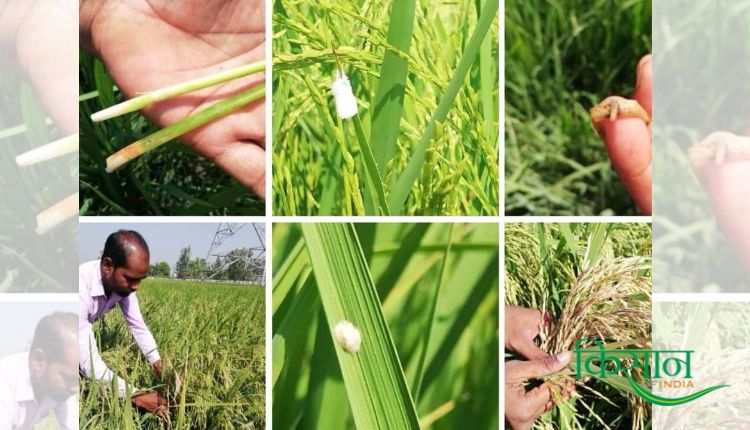
Identification and Prevention of Grasshopper Pests
Grasshopper is one of the pests of paddy crop. These greenish-yellow insects are 40 to 50 mm long, with three black stripes on their neck. The outbreak of this insect is seen between August and September. To protect against this pest, keep the field filled with water, so that its eggs are destroyed.
Put more emphasis on integrated pest management than on insecticidal chemicals
Plant protection expert Dr. Mayank Kumar Rai suggested that if farmers make changes in crop rotation, then the incidence of these pests will be reduced. If the crop is affected by pests on a large scale, then after irrigating the crop, a rope should be passed over the crop by crossing it. The insects engaged in the crop will hit the rope, fall into water and will be destroyed. Apart from this, install various types of traps in the fields such as pheromone traps are an effective weapon for farmers.
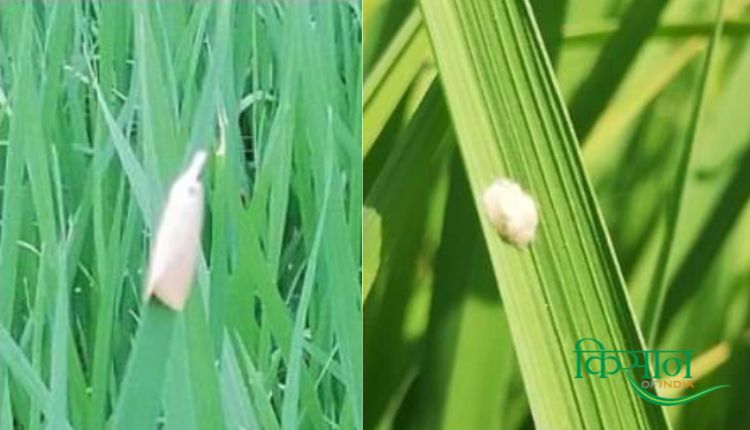
Control of harmful pests through friendly insects
Dr. Rai said that the harmful insects of the crop can also be controlled through the help of friendly pests. He said that nowadays friendly insects like Trichogramma, Chrysoperla, lady bird beetle are raised in the bio-labs and their numbers are increased. Then by using them in the fields, the effect of harmful insects can be eliminated.
He said that harmful insects can be controlled by making organic insecticides or buying them from the market. Integrated pest management has several advantages over insecticidal chemicals. They are sustainable and are profitable due to their dependence on the resources found in nature. They also prove to be helpful in keeping the environment balanced.
Contact us: If farmers want to share information or experiences related to farming with us, then they can do this by calling us on the phone number 9599273766 or by writing an email to kisanofindia.mail@gmail.com or by sending your recording. Through Kisan of India, we will convey your message to the people, because we believe that if the farmers are advanced then the country is happy.
You can connect with Kisan of India on Facebook, Twitter, and Whatsapp and Subscribe to our YouTube channel.

